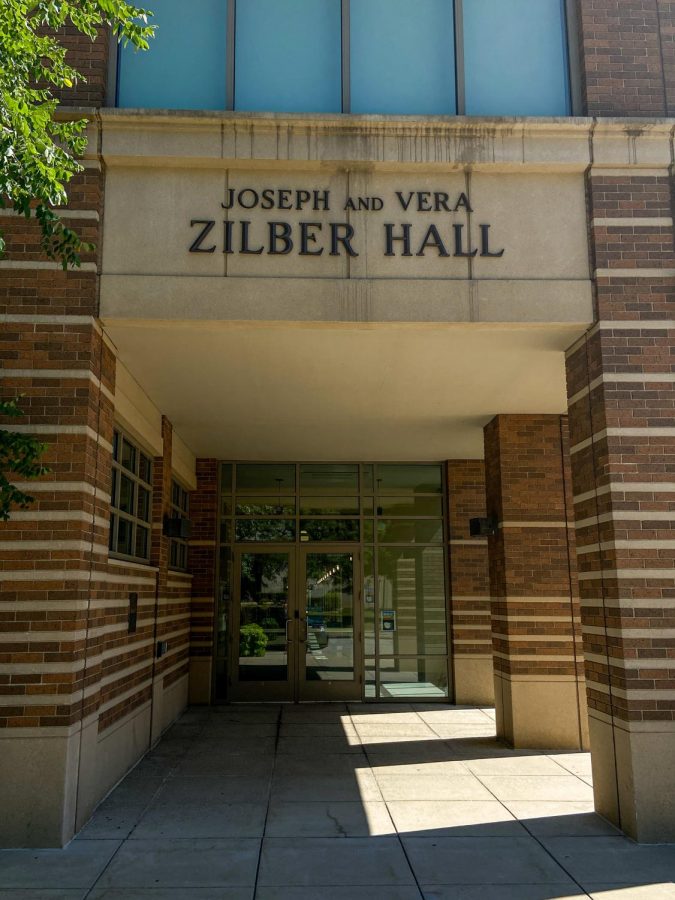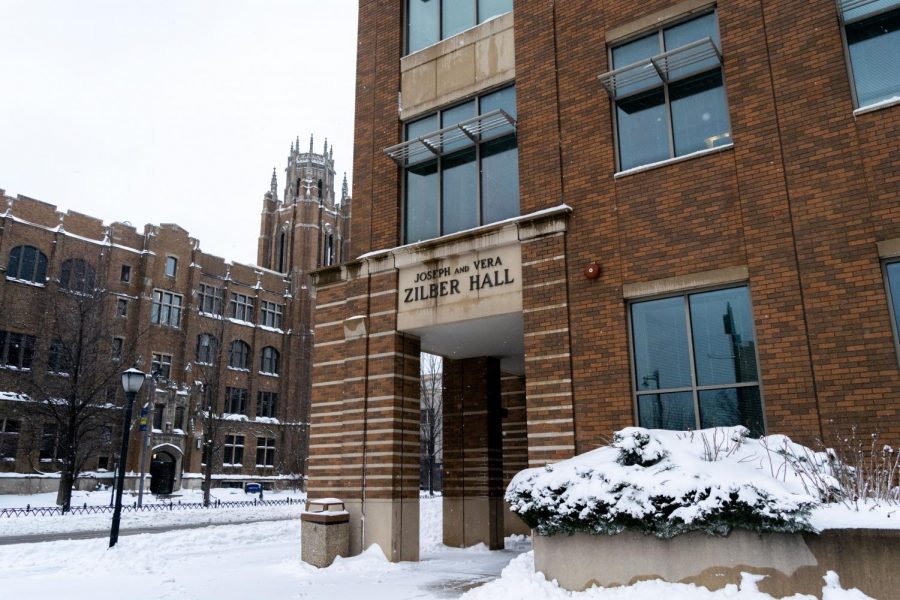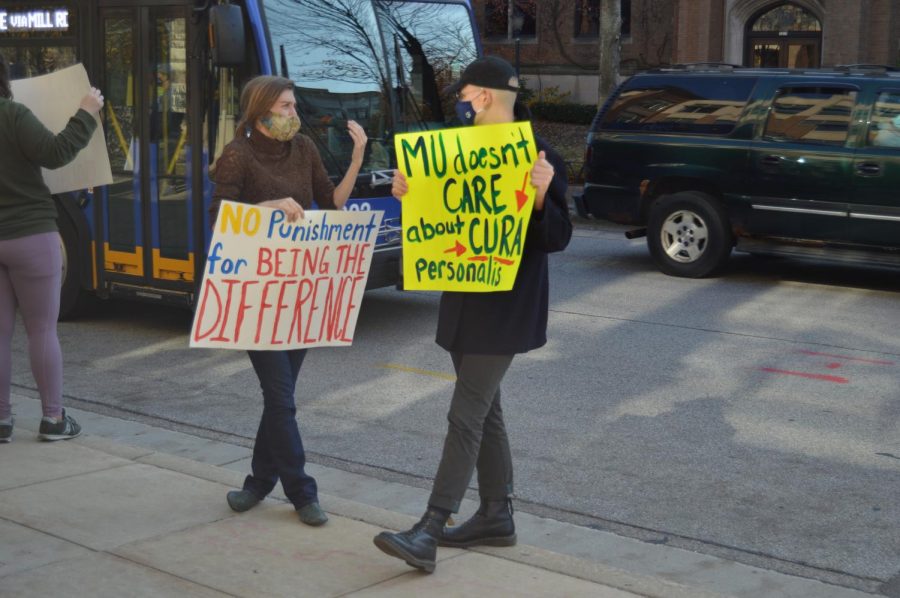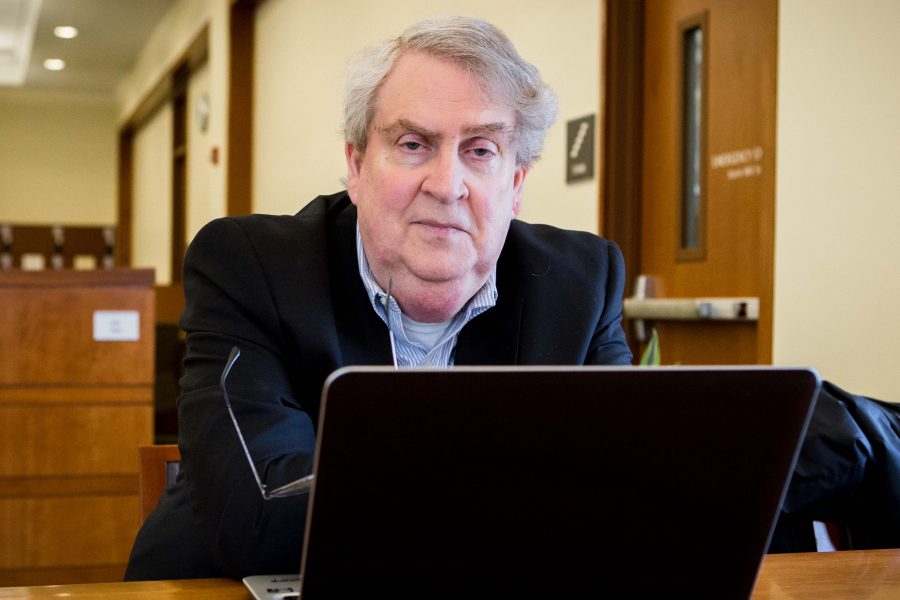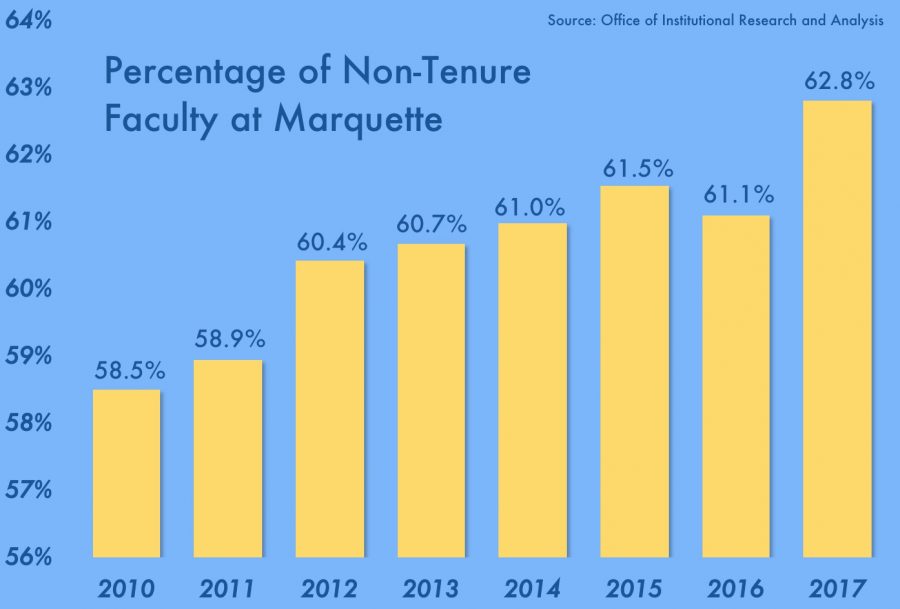Many students only discuss tenure when they’re outraged by a particular professor’s continued employment at the university. Tenure often takes the blame, but it is rarely discussed or understood otherwise.
Advocates of tenure attest it is more than just job security since it offers protections that are essential for a thriving academic setting.
“Tenure is an indefinite appointment terminable only for cause,” said Greg Scholtz, director of the American Association of University Professors’ Department of Academic Freedom, Tenure & Governance.
This means professors who have been granted tenure will retain their positions until they retire, are removed for some offense or their department is eliminated due to financial constraints, he said.
“You have an appointment you can keep as long as no one can demonstrate that you’re incompetent or have engaged in misconduct,” Scholtz said.
The AAUP has been a leader in developing the standards for tenure since 1940.
Though tenure aims to protect academic freedom, some criticize that it entrenches potentially bad professors within the university. Some also argue tenure places excessive emphasis on research over quality teaching.
[youtube]zG5jIB8u0kg[/youtube]
The steps of the tenure track
At Marquette, the tenure process begins the moment a faculty member is hired, assuming he or she isn’t an adjunct or a visiting professor, said James Marten, chair of the history department.
Assistant professors are either nominated or self-nominated for tenure, according to the Office of the Provost website.
The candidate will then be reviewed yearly and have until his or her seventh year to secure tenure. If it is not granted by this time, the candidate’s contract with the university is terminated.
Professors in their seventh year without it are called “time-bound,” Marten said.
There may also be department-specific requirements. For example, history professors must publish a book before they are eligible for tenure, he said.
Once nominations are secured, Marten said the department chair and the candidate begin assembling a 100- to 200-page dossier containing the candidate’s research, course evaluations, independent reviews of their work and other material. Departments seek input from outside experts in the field as well as students, Marten said.
Students of a nominated professor are randomly selected and asked to write a letter addressing whether the faculty member should receive tenure, he said.
Over the summer, a tenure candidate works on assembling research, teaching statements and a comprehensive curriculum vitae, he said.
In the fall, tenured department members vote on whether to support tenure for the candidate. If a candidate is approved, a larger committee of representatives from different departments within the college decides whether to recommend the candidate to the college’s dean.
If the dean approves, the University Committee on Faculty Promotions and Tenure is asked to review the candidate. From there, the candidate’s dossier is put before the provost.
At this point, the university president also weighs in, Marten said.
“My personal point of view is that the provost usually goes along with the dean, and the dean usually goes along with the department, unless it’s a split vote, and it can be sometimes,” Marten said.
Provost John Pauly said he and University President the Rev. Robert A. Wild have rarely disagreed on a candidate.
When faced with a faculty member who has received mixed reactions, Pauly said he and Wild often review the candidate together.
Cheryl Maranto, chair of the management department, said she could think of only a few instances in which a department’s recommendation for tenure was rejected.
Faculty members usually find out if they have received tenure around late February, one year after their tenure process began, Marten said.
The reasoning behind tenure
Tenure arose out of a desire to protect academic freedom, Scholtz said.
“The traditional argument is essentially this: Quality education and quality research require that those who are performing that teaching and research function have the room, or the ability, or the autonomy to do their work according to the best professional standards,” he said. “You’re making it harder for their services to be terminated for the wrong reasons.”
This makes tenure a particularly unique practice, Maranto said.
“The main reason for tenure is a societal one,” she said. “The university is really the only institution in society where people are protected for espousing controversial or unpopular views.”
Daniel Maguire, a professor of theology, said his position at the university would almost certainly be in danger if he didn’t have tenure.
In studies like theology where many divergent viewpoints exist, tenure is essential to ensuring professors are able to tackle challenging issues with their students, he said.
Maguire has occasionally taken controversial stances in his writings, such as defending mercy killings or abortion in certain circumstances, two positions that conflict with Catholic teachings.
Recently, he wrote a letter to the editor published in The New York Times, which criticized Archbishop Timothy Dolan of New York.
“A lot of people are probably not pleased, but that’s my job,” he said.
Ultimately, tenure benefits all of academia, Scholtz said.
“Academic freedom is necessary for academic quality, and tenure is necessary for academic freedom, so tenure serves the public good,” he said.
Pauly said the freedom tenure grants is essential to ensuring professors perform at their best.
“It’s the idea that professors, if we want them to do their best work, have to be free to explore,” Pauly said.
The problems tenure poses
Some opponents of tenure argue it’s harder to remove professors who aren’t effective instructors. This is referred to as the “deadwood” argument, Scholtz said.
Though he did not deny tenure could keep mediocre instructors employed, he said university officials often share much of the blame.
“Administrators have a responsibility to weed out the incompetent in their midst,” Scholtz said.
Even if a professor has tenure, it’s still possible to remove a poor instructor, he said.
“Just because tenure means faculty are provided a due process when someone wants to fire them, doesn’t necessarily mean that faculty members can’t be gotten rid of if they’re no good,” he said.
Tenured professors still have incentives to excel and improve, such as pay raises, which are tied to annual evaluations and student course evaluations, Pauly said.
Some argue tenure contributes to the “publish or perish” drive in academia, which is the intense pressure professors face to publish as much as possible, at the expense of more thorough research and attention to teaching.
But Scholtz said he doesn’t think this problem directly relates to tenure.
“That has nothing to do with tenure per se. That has to do with a particular institution’s own standards,” he said. “We at AAUP have not said that tenure is to protect research. Tenure is to protect all faculty work, including teaching.”
Marten said he doesn’t think Marquette professors are excessively focused on research, nor does he necessarily think it’s a bad thing to focus more on teaching or research.
“There are a lot of myths about academic freedom and tenure,” Scholtz said. “It’s not meant to protect the incompetent. It’s not for the professors. It’s not a privilege. It’s for education quality and ultimately for the students and society.”
Another issue arises with the gender imbalance of tenured professors and professors who advance to full professorship status, Maranto said.
This is something Marquette has tried to address but which has not been fully solved, she said.
For example, according to Marquette’s Office of Institutional Research and Assessment, in 2009 the College of Arts & Sciences had 130 tenured male professors and 41 tenured female professors. Only seven of those 41 have been advanced from associate professor to full professor status, while 68 of the tenured male professors have been advanced.
Pauly acknowledged that gaps exist but are narrowing every year, although the gap “hasn’t always narrowed enough,” he said.
Historical hiring practices are largely to blame since men were once blatantly favored over women in the realm of academia, he said. Marquette is still trying to correct this imbalance in hiring and promotion.
Pauly said he presents on this issue every year to the University Academic Senate.
“They take this seriously,” he said.



